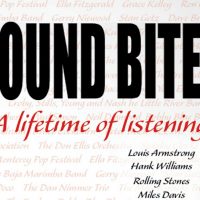This is the sound of genius finding itself — in Bob Dylan, once more; in the Band, for the very first time. It’s the sound of discovery, of revelation. It’s a new vista, and some guys screwing around. It’s digging deep, and having a laugh. It’s stuff that will last forever, and things done simply on a lark.
Such is the nature of something this intimate, this seminal, this sprawling. After all, The Basement Tapes Complete: The Bootleg Series, Vol. 11, which finds Bob Dylan and the Band pouring the foundation on everything they’d do over the next few years, unspools across six discs and nearly 140 songs.
Along the way, we gain new perspective on a period of quietude for Dylan, who didn’t perform live anywhere else in 1967 — and would only play four concerts over the next four years. He and the rest of the Band arrived after a fierce period of experimentation, one that Dylan’s record-buying public in some cases seemed scarcely ready to accept, and one that seemed to come crashing down in the same way Dylan’s motorcycle famously did. He used that accident as an opportunity for reflection and, in fact, most everything that came before seems impossibly far away on the bottom floor of this West Saugerties farmhouse, as Dylan, Robbie Robertson, Richard Manuel, Garth Hudson, Rick Danko and Levon Helm rummage around for what might come next.
There are certainly times when The Basement Tapes Complete: The Bootleg Series, Vol. 11 feels like a woodshedding moment for both Dylan and the Band, as we hear scores of snippets — half-finished thoughts, throw-away originals, weird cover songs — that justifiably didn’t make the cut on the Robertson-curated 1975 single-disc edition of The Basement Tapes. As such, those who don’t consider themselves completists might be tempted to steer toward the 38-track, two-disc set — or simply settle for the long-ago original release.
In many ways, though, the charm (and the relevancy) of this larger compendium can be found in this winding, open-ended quest. There were no rules, no dogma. Memorably covered tracks certainly emerged from the period (including those for Manfred Mann, the Byrds, Peter Paul and Mary, and others), and three of these songs (“Tears of Rage,” “I Shall Be Released” and “This Wheel’s on Fire“) were reconfigured for the Band’s triumphal debut, Music from Big Pink. But The Basement Tapes Complete is about more than the sum of its successes.
Instead, it’s hearing — it’s viscerally experiencing — the birth of Bob Dylan’s next persona, and the establishing of an entire aesthetic world around the Band. It’s all there — the absurd sense of humor (“Million Dollar Bash,” “See You Later Allen Ginsberg”), the abiding sense of history (John Lee Hooker’s “Tupelo,” Curtis Mayfield’s “People Get Ready”), of dark, spiritual ruminations (“Tears of Rage,” “I Shall Be Released“), of ageless connection (“Ain’t No More Cane,” “She’ll Be Coming ‘Round the Mountain,” “See That My Grave Is Kept Clean”) and of loose, familial fun (“Apple Suckling Tree,” “Don’t Ya Tell Henry”).
Gone are the benzedrine beats of Dylan’s earlier work with the former Hawks, who themselves have become reborn in both name and in spirit, as well. They were finding, in fits and starts, a new musical language for themselves — something that would lead Dylan to the homespun joys of John Wesley Harding and the Band to the Americana big bang that was Music from Big Pink. But first there were things to work out, an amazing number of side roads to explore.
The tough R&B influences that had ruled the imaginations of the Band long before Bob Dylan came along, when they were backing a transplanted rockabilly hound named Ronnie Hawkins, fell away. Something more elemental emerged in its place — something quieter, direct, honest, free-flowing and, ultimately, archetypical of so much that subsequently happened in both of their careers. These journeys find their first real intersection within originals like “I Shall Be Released,” and “Tears of Rage,” presented through a sequence of takes that make clear the amazing fission taking place.
Hudson returned, along with a group including Peter Moore, Jan Haust and Mark Wilker, to collate, restore and remaster The Basement Tapes Complete: The Bootleg Series, Vol. 11, — yeoman’s work, considering the loose, haphazard fashion in which these recordings were originally made. They didn’t necessarily find anything more individually revelatory than what had already been officially released in the 1970s, but that doesn’t mean there wasn’t still important work to be done.
This new box brings us as close as we’ll ever get to a critical moment of shared inspiration, and that proximity sheds new light on all of the whimsy, brotherhood, epiphany and myth-making that, even today, give The Basement Tapes its endless cachet.
- How Deep Cuts on ‘Music From Big Pink’ Underscore the Band’s Triumph - July 31, 2023
- How ‘Islands’ Signaled the Sad End of the Band’s Five-Man Edition - March 15, 2022
- The Band’s ‘Christmas Must Be Tonight’ Remains an Unjustly Overlooked Holiday Classic - December 25, 2016



